Health
The Power of Spore Probiotics: A Revolutionary Approach to Treating Chronic IBS
Irritable Bowel Syndrome (IBS) affects millions of Americans, causing debilitating symptoms such as chronic abdominal pain, bloating, diarrhea, constipation, and fatigue.
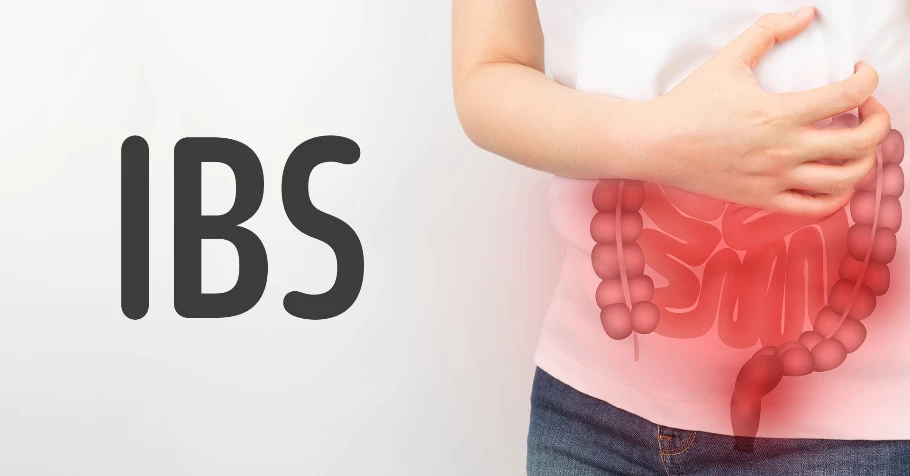
Irritable Bowel Syndrome (IBS) affects millions of Americans, causing debilitating symptoms such as chronic abdominal pain, bloating, diarrhea, constipation, and fatigue. For those who’ve been suffering from IBS for many years, the journey to find relief often feels endless.
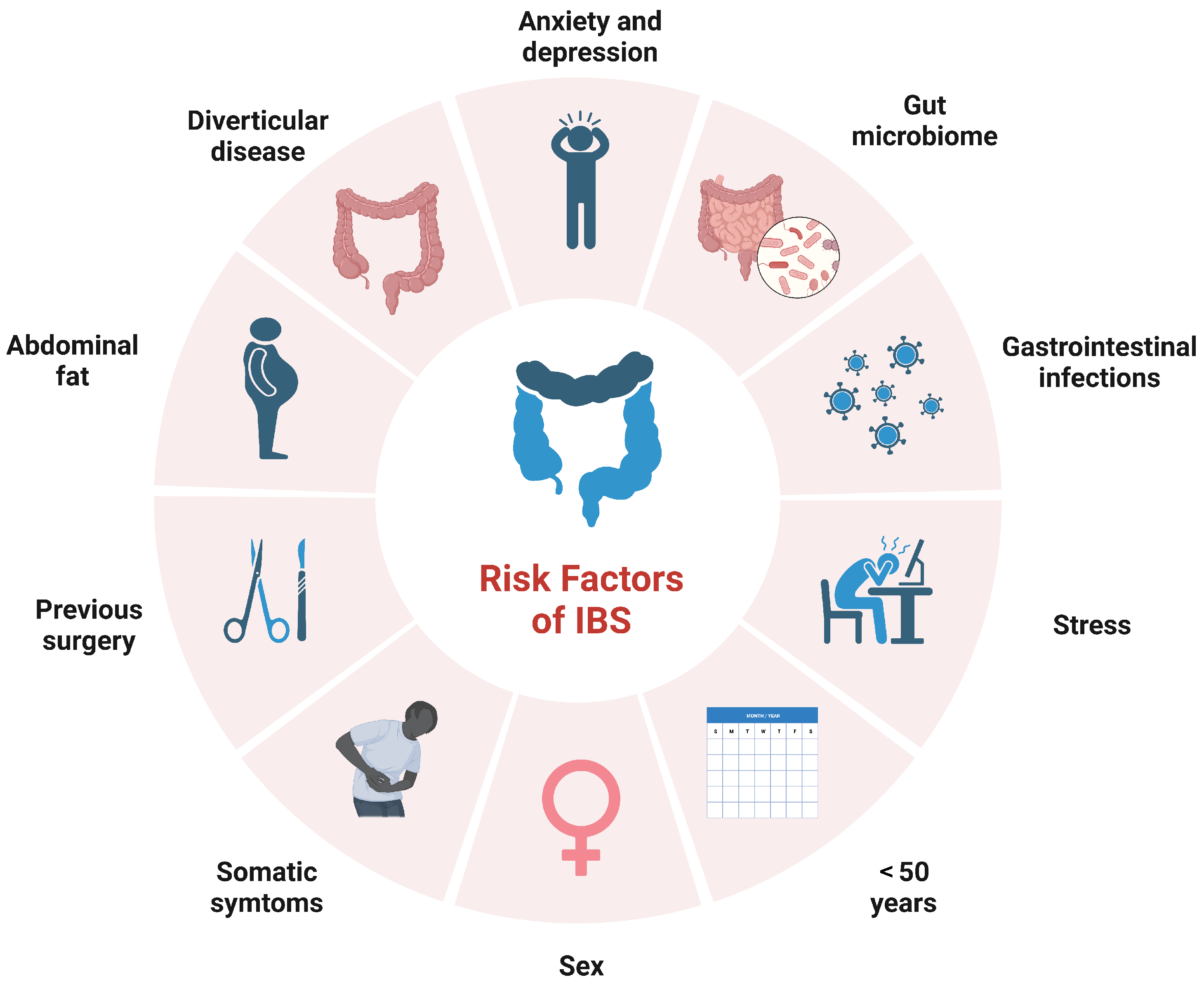
Conventional treatments and diets may offer temporary relief, but rarely address the core issues that keep symptoms coming back. This is where spore probiotics, a breakthrough in gut health science, are changing the game for chronic IBS sufferers.
Understanding the Unique Challenge of Chronic IBS
Long-term IBS sufferers often face more severe symptoms due to prolonged inflammation and imbalances in gut bacteria. Over the years, persistent inflammation damages the gut lining, resulting in a weakened gut barrier. This “leaky gut” environment allows harmful toxins and undigested food particles to enter the bloodstream, worsening inflammation and symptoms.
Traditional probiotics have often been recommended for IBS. However, their effectiveness is limited because most standard probiotics can’t survive the acidic environment of the stomach and fail to reach the intestines where they are needed most.
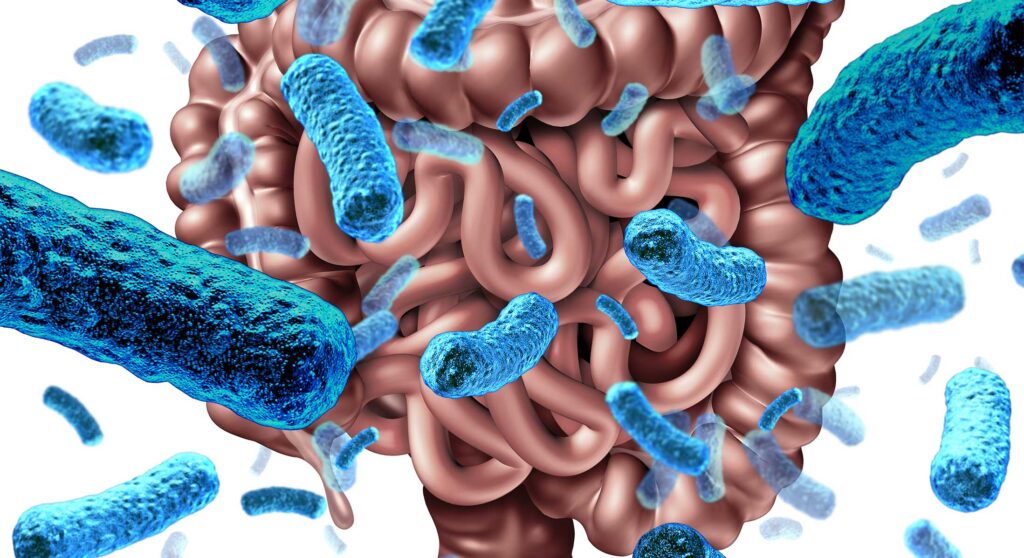
What Are Spore Probiotics?
Spore probiotics are a powerful alternative, providing remarkable benefits for individuals struggling with long-term IBS. Unlike typical probiotics, spore probiotics are naturally encapsulated in a protective, dormant shell. This allows them to pass through the harsh acidic conditions of the stomach unscathed, only germinating once they reach the more hospitable environment of the intestines.
These spores then transform into beneficial bacteria, thriving in the gut, helping restore balance to your microbiome, and providing sustained relief from IBS symptoms.

Key Benefits of Spore Probiotics for Chronic IBS
1. Enhanced Survivability and Efficacy
Spore probiotics’ unique protective structure significantly enhances their survivability through the digestive tract, enabling them to reach the intestines alive and active. Once there, they can effectively colonize the gut, supporting the growth of beneficial bacteria, reducing inflammation, and promoting a healthier gut environment.
2. Rebuilding the Gut Barrier
One of the major factors behind chronic IBS symptoms is a damaged gut barrier. Spore probiotics, particularly strains like Bacillus subtilis and Bacillus coagulans, have been shown in studies to help restore gut lining integrity. This repair reduces the symptoms of “leaky gut,” helping to prevent unwanted substances from entering the bloodstream.
3. Reducing Chronic Inflammation
Chronic inflammation in the gut is a hallmark of long-term IBS. Spore probiotics work by modulating the immune system, reducing the inflammatory response, and promoting anti-inflammatory compounds within the gut. This helps to decrease the frequency and severity of IBS flare-ups.
4. Balancing the Gut Microbiome
Imbalances in gut bacteria (dysbiosis) are common in chronic IBS sufferers. Spore probiotics effectively restore balance by promoting the growth of beneficial bacteria and inhibiting harmful pathogens. By reestablishing a healthy microbiome, these probiotics help alleviate symptoms like bloating, gas, and unpredictable bowel movements.
5. Sustained Relief from IBS Symptoms
Because spore probiotics actively colonize and thrive in the gut, they provide longer-lasting relief compared to conventional probiotics. This sustained effect is crucial for chronic IBS sufferers who seek not just temporary relief but a long-term solution to manage and eventually overcome their symptoms.
Clinical Evidence Supporting Spore Probiotics for IBS

Numerous clinical studies have demonstrated the efficacy of spore probiotics in reducing IBS symptoms. A 2019 study published in the “World Journal of Gastroenterology” found that patients taking spore-forming probiotics experienced significant improvement in abdominal pain, bloating, and stool consistency compared to placebo.
Another research published in the “Journal of Clinical Gastroenterology” in 2020 indicated that Bacillus coagulans significantly reduced abdominal pain and discomfort in chronic IBS patients, confirming the potency of spore probiotics for lasting gut health improvements.
Introducing Liquid Spore Probiotics – GutShields
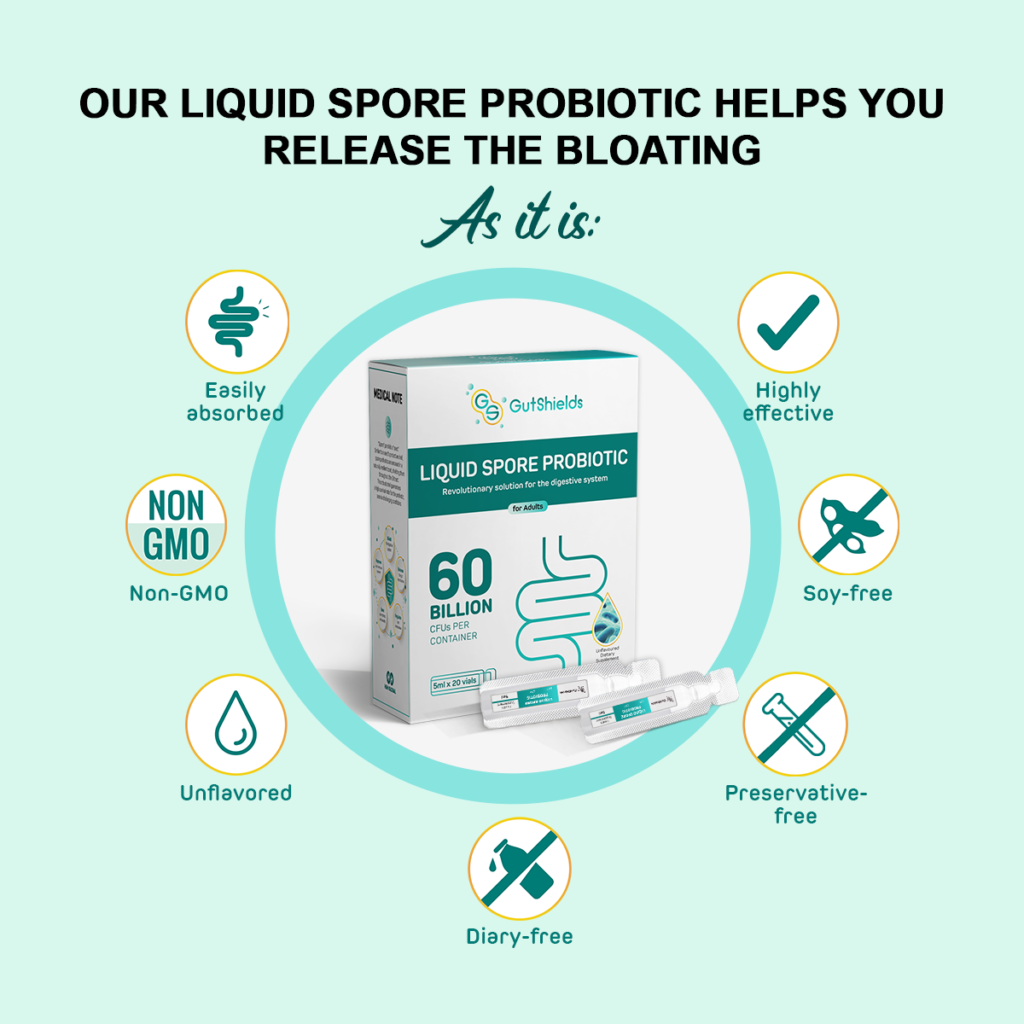
For chronic IBS sufferers seeking effective and sustained relief, Liquid Spore Probiotics – GutShields provides a powerful solution. Specifically formulated with clinically proven spore probiotic strains, GutShields ensures that these potent probiotics survive your stomach’s acidic environment and effectively colonize your gut, targeting inflammation, restoring your gut barrier, and rebalancing your microbiome.
GutShields has been trusted by thousands of chronic IBS sufferers, offering hope and a practical path to a symptom-free life. Experience the life-changing benefits of spore probiotics and reclaim control over your health and wellbeing.
Ready to experience true IBS relief?
[Learn more about Liquid Spore Probiotics – GutShields today and start your journey toward lasting comfort and gut health!]
Health
Hydration Hacks for IBS: The Right Way to Drink Water
Drinking water the wrong way can worsen IBS symptoms. Discover how to hydrate smarter—small sips, steady timing, and natural add-ins—to support digestion and gut balance.

“It’s not just about drinking more water—it’s about drinking the right way.”
If you have Irritable Bowel Syndrome (IBS), you’ve probably been told to drink plenty of water. But here’s the catch: how you drink matters just as much as how much you drink.
For many people with IBS, chugging large amounts of water in one go can actually trigger strong intestinal contractions, leading to urgency, bloating, or discomfort.

The Science of Hydration and Digestion
- Rapid intake of water can overstimulate the digestive tract and speed up motility.
- Even, steady hydration supports smoother digestion and nutrient absorption.
- Proper hydration also helps regulate stool consistency, easing both IBS-C (constipation) and IBS-D (diarrhea).
In short: your gut doesn’t just want more water—it wants consistent hydration.
Practical Hydration Habits for IBS
Here are science-backed ways to drink water that keep your digestion steady:
✅ Sip, don’t chug
Aim for 150–200 ml (about half a cup) every 2 hours instead of gulping down large amounts at once.
✅ Infuse with digestion-friendly add-ins
A slice of lemon, cucumber, or fresh mint can make hydration enjoyable and may help soothe bloating.
✅ Match timing with meals
Drink water between meals rather than during them to reduce the risk of overwhelming your stomach acid and slowing digestion.
✅ Choose temperature wisely
Many people with IBS find that room-temperature or warm water is gentler on the gut than ice-cold water.
The Bigger Picture
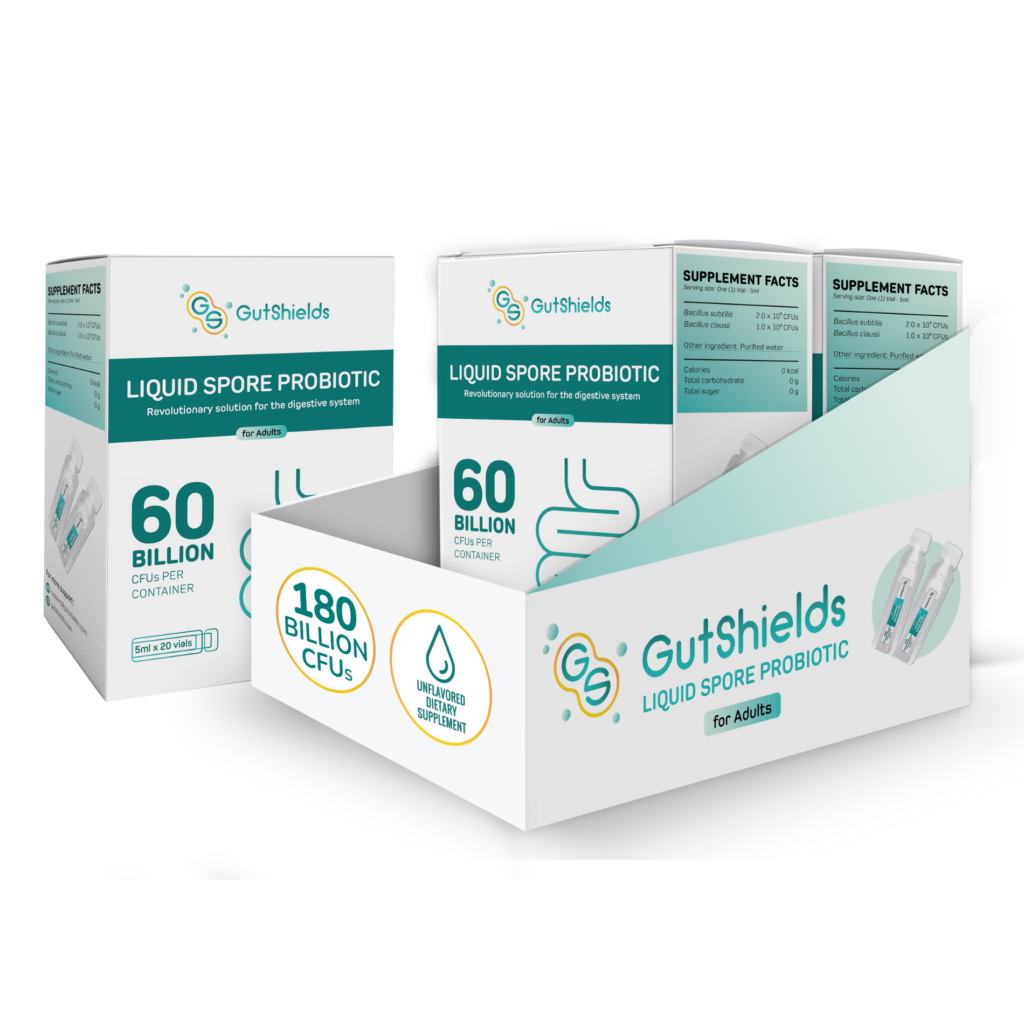
Hydration is one piece of the IBS puzzle. Pairing good hydration habits with microbiome support—such as spore-based probiotics like GutShields—creates a powerful daily foundation for calmer digestion.
Bottom Line
When it comes to IBS, hydration isn’t just about volume—it’s about rhythm. Steady, mindful sipping can keep your gut balanced and your symptoms calmer.
✨ Stay hydrated, stay balanced—let GutShields help protect your gut microbiome.
Health
Why Sleep Quality Can Make or Break Your IBS Recovery
Poor sleep doesn’t just cause fatigue—it can worsen IBS by raising cortisol, triggering inflammation, and disrupting gut bacteria. Learn how to improve sleep to support your digestion and long-term gut health.

“Poor sleep isn’t just making you tired—it might be keeping your gut inflamed.”
Living with Irritable Bowel Syndrome (IBS) means constantly balancing stress, diet, and lifestyle to avoid flare-ups. But one factor often overlooked is sleep quality. Many people with IBS report that their symptoms are worse after nights of poor sleep. Science now shows this isn’t just coincidence—sleep has a direct influence on the gut-brain axis, the microbiome, and inflammation levels.
If you’ve tried dietary changes, supplements, and even medication without lasting relief, improving your sleep could be the missing piece of your IBS recovery.

The Science: How Sleep and IBS Are Connected
- Cortisol and inflammation
- Poor or fragmented sleep raises cortisol, your body’s main stress hormone.
- Elevated cortisol has been linked to increased gut permeability (“leaky gut”), more inflammation, and heightened pain sensitivity—all of which make IBS symptoms worse.
- Gut microbiome disruption
- Studies show that even short-term sleep deprivation reduces microbial diversity.
- A disrupted microbiome may lead to more gas, bloating, constipation, or diarrhea in IBS patients.
- Gut-brain axis imbalance
- Your digestive tract has its own nervous system (the enteric nervous system).
- Poor sleep dysregulates this system, which can throw off motility—causing irregular bowel habits, urgency, or spasms.
In short, sleep doesn’t just recharge your brain—it recharges your gut.
Practical Steps for IBS-Friendly Sleep

Here’s how you can start improving sleep quality—and by extension, your digestion:
✅ Set a consistent bedtime and wake time
Your circadian rhythm influences gut motility. Going to bed and waking up at the same time each day helps regulate bowel function.
✅ Limit screens at night
Blue light from phones and laptops suppresses melatonin, making it harder to fall asleep. Try switching to a book or listening to calming music.
✅ Create a wind-down ritual
Deep breathing, light stretching, or journaling can signal your nervous system to shift into “rest and digest” mode—essential for people with IBS.
✅ Support with natural aids
Chamomile tea, magnesium glycinate, or lavender aromatherapy have been shown to improve relaxation and sleep quality.
✅ Feed your microbiome wisely
Avoid late-night heavy meals, alcohol, or excess caffeine. Pair your routine with spore-based probiotics like GutShields to support a resilient microbiome overnight.

The Bigger Picture: Sleep as IBS Medicine
When you consistently improve your sleep, you’re not just preventing fatigue—you’re:
- Calming inflammation
- Helping good bacteria thrive
- Regulating gut-brain communication
- Supporting more regular, pain-free bowel movements
That’s why sleep isn’t just a lifestyle tip—it’s a therapeutic tool for IBS recovery.
Bottom Line
If you’ve been treating IBS only through diet or medication but ignoring your sleep, you may be missing a key part of the solution. By protecting your nights, you protect your gut.
✨ Give your gut the rest it deserves—combine better sleep with GutShields for faster, lasting relief.
Health
The IBS-Friendly Morning Routine That Can Calm Your Gut All Day
Your morning choices can set the tone for your gut health all day. Discover a simple, IBS-friendly routine that supports the gut-brain axis, reduces inflammation, and promotes comfortable digestion.

What if the way you start your morning could determine whether you spend the rest of your day in comfort—or in pain?

For people with Irritable Bowel Syndrome (IBS), mornings can feel like a gamble. One wrong choice—whether it’s a cup of strong coffee on an empty stomach or skipping breakfast entirely—can trigger bloating, cramps, or urgent bathroom trips that last all day.
Emerging research shows that morning routines influence the gut-brain axis, the two-way communication system between your digestive tract and nervous system. This axis controls motility (how food moves through your intestines) and regulates inflammation—both of which are key players in IBS.
A calm, balanced start can keep your gut in “rest and digest” mode rather than fight-or-flight, reducing the likelihood of flare-ups.
Your IBS-Friendly Morning Blueprint

1️⃣ Drink Warm Water Before Anything Else
Hydration supports smooth bowel movements and helps “wake up” the digestive tract without the jolt of caffeine. Warm water can be especially soothing for intestinal muscles.
2️⃣ Practice 5 Minutes of Deep Breathing
Deep, diaphragmatic breathing activates the parasympathetic nervous system, which encourages healthy digestion and reduces gut hypersensitivity. Try inhaling for 4 counts, holding for 4, and exhaling for 6.
3️⃣ Have a Gentle, Protein-Rich Breakfast with Soluble Fiber
Instead of skipping breakfast or eating ultra-processed carbs, choose:
- Soft scrambled eggs with a side of cooked oats
- Smoothie with lactose-free yogurt, chia seeds, and banana
Soluble fiber from oats or chia seeds helps regulate bowel movements, while light protein stabilizes blood sugar and supports muscle repair.
4️⃣ Avoid Caffeine First Thing
Coffee immediately after waking can overstimulate the gut and worsen diarrhea in IBS-D, or cause cramping in IBS-M. If you enjoy coffee, try having it after your breakfast to lessen the impact.
Why This Works for IBS
- Hydration + soluble fiber = easier, more regular bowel movements
- Deep breathing = calmer gut-brain signaling
- Balanced breakfast = steady energy without blood sugar spikes
- Delayed caffeine = reduced gut motility shocks and inflammation risk
Over time, these habits can train your body to start the day in digestive balance—meaning fewer flare-ups and more freedom to enjoy your day.
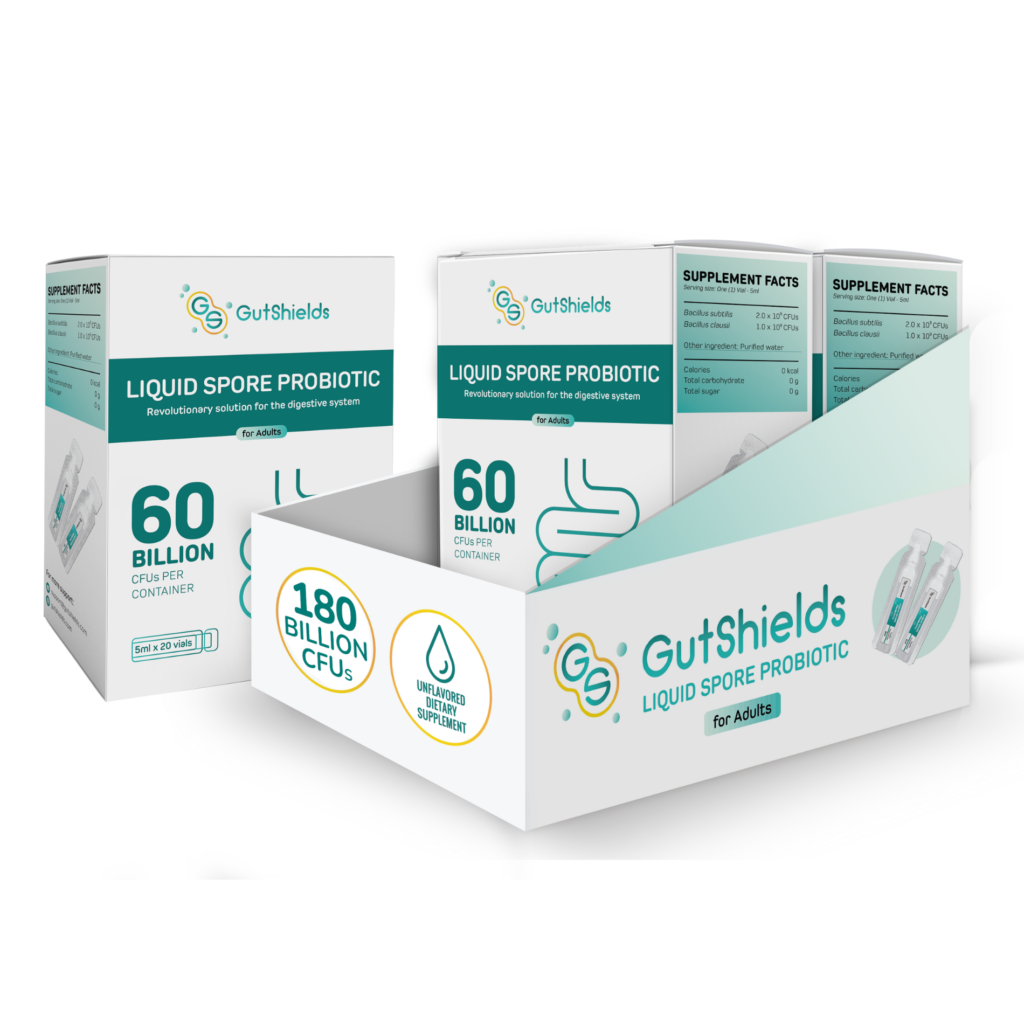
Start tomorrow with these small changes—and discover how calm your gut can be. Pair it with GutShields to support your microbiome from the inside out.
-
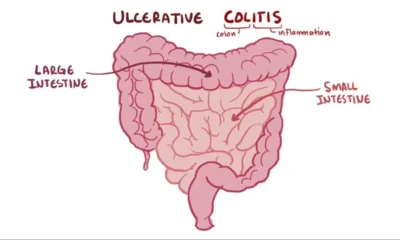
 Health8 năm ago
Health8 năm agoAll About Microscopic Colitis: Causes, Diagnosis, and Treatment
-

 Entertainment8 năm ago
Entertainment8 năm agoI Tried Medication, Diets, and Meditation — And Finally Found Peace in Acceptance
-

 Health8 năm ago
Health8 năm agoWhat Is a Gastroenterologist? When to See One, and the Problems They Can’t Help With
-

 Health8 năm ago
Health8 năm agoTop 7 Questions to Ask Your Gastroenterologist!
-

 Health8 năm ago
Health8 năm agoWhat Causes Mucus in Your Stool—and Why You Shouldn’t Ignore It
-

 Health8 năm ago
Health8 năm agoA New Cause and Treatment for Lymphedema
-
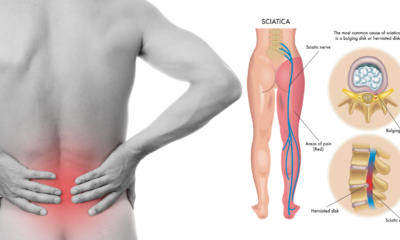
 Health8 năm ago
Health8 năm agoIBS and Sciatica Pain – Is There a Connection?
-

 Tech8 năm ago
Tech8 năm agoHealing IBS Isn’t About Forcing Your Gut—It’s About Resetting Its Natural Rhythm
















